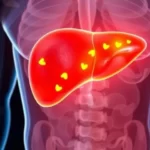Psoriasis is a chronic autoimmune skin disorder that leads to excessive buildup of skin cells, resulting in thick, inflamed, and scaly patches. As conventional treatments often come with side effects or offer only temporary relief, many are turning toward homoeopathy — a safe, individualized, and natural healing system. In this comprehensive guide, discover how homeopathy addresses psoriasis at its root through tailored remedies and holistic care, delivering lasting results without harmful interventions.
Understanding Psoriasis: Causes and Symptoms
Psoriasis arises from an overactive immune response, which accelerates skin cell turnover. This rapid regeneration results in plaques—raised, inflamed, and scaly skin, typically appearing on the elbows, knees, scalp, and lower back. The condition varies in intensity, from mild to debilitating.
Common symptoms include:
- Red, raised patches covered with silvery scales
- Cracked skin that may bleed
- Burning, soreness, or itching
- Nail abnormalities, such as pitting or thickening
- Joint stiffness and pain in psoriatic arthritis
Triggers range from infections and skin injuries to stress, smoking, cold weather, and certain medications.
Why Homeopathy Offers Hope for Psoriasis Sufferers
Homeopathy views psoriasis as a reflection of internal imbalance, not merely a surface issue. Treatment aims to identify and heal the root cause, whether it’s immune dysregulation, genetic predisposition, or psychological stress.
Benefits of choosing homeopathy:
- Treats the condition from within, aiming for long-term relief
- Non-toxic and free from harmful side effects
- Safe for all ages, including children and pregnant women
- Remedies tailored to the individual’s specific triggers and symptoms
While conventional medicine often suppresses symptoms temporarily, homeopathy focuses on correction and cure.
Most Effective Homeopathic Remedies for Psoriasis
Some of the most effective remedies for psoriasis, elaborated with classical materia medica insights:
Psorinum – Especially effective for oily, dirty-looking skin with crusty eruptions that worsen in winter. It is often prescribed for chronic skin conditions with intense itching that worsens when warm in bed. It helps in patients whose skin appears unwashed and greasy, and is useful when eruptions occur in the bends of joints or follow suppressed itch.
Oleander – For eczema-prone skin that is highly sensitive, especially around the neck, thighs, and scrotum. It is beneficial for crusta lactea and eruptions triggered by gastrointestinal issues.
Viola Tricolor – Highly valued in treating children with crusty, foul-smelling eczema. Especially effective in crusta lactea and impetigo.
Sepia – Works well for annular psoriasis with brown or yellow spots, especially in women undergoing hormonal shifts. It’s suited for herpetic conditions around joints, behind ears, and ringworm-type psoriasis that discharges on removing scales.
Graphites – Ideal for thick, cracked skin that oozes a sticky fluid, particularly in skin folds. It’s distinct from Hepar sulphur due to less sensitivity and more dryness.
Kali Arsenicosum – Suitable for chronic psoriasis marked by thick plaques that worsen with cold weather. It is particularly effective when the skin hardens and scales off.
Sulphur – Indicated for long-standing psoriasis with intense itching worsened by warmth, especially in bed. It also helps in urticaria and itchy skin disorders associated with heat.
Tellurium – Excellent for circular, bleeding patches typical of ringworm-like psoriasis. This remedy is especially useful when lesions ooze and have a pungent odour.
Hepar Sulphur – Works for moist eruptions in the folds of the skin with extreme sensitivity. Pimples around ulcers and eczema of the genitals are common presentations.
Nitric Acid – Useful for deep, ragged-edged ulcers and painful cracks, often present in long-standing psoriasis cases with bleeding.
Ranunculus Bulbosus – Prescribed for blistering eruptions with burning pain along nerve courses. Effective in herpes zoster and conditions with thick yellow scabs.
Pulsatilla – Works for urticaria and skin eruptions related to hormonal or gastric origins. Also helpful in hives that follow dietary triggers like pork or buckwheat.
Apis Mellifica – Indicated when the psoriasis resembles urticaria, with sudden eruptions, severe itching, and sensitivity to heat. Useful in lichen and nodular eruptions.
Kali Muriaticum – A go-to remedy for eczema capitis and chronic moist eczemas, especially when stubborn and recurrent. Also recommended in acne and sycotic skin problems.
Customization in Homeopathic Care: No One-Size-Fits-All
The cornerstone of homeopathy is individualization. Two people with similar-looking skin lesions may receive entirely different remedies based on their emotional state, lifestyle, environmental triggers, and medical history.
A detailed homeopathic consultation explores:
- Mental and emotional well-being
- Past illnesses and family history
- Environmental sensitivities
- Dietary habits and sleep patterns
This patient-centric model increases the chances of complete and lasting healing.
Caution: What to Avoid on Psoriatic Skin
Proper skin care is critical in managing psoriasis. Certain commonly used products and practices can aggravate the condition.
Avoid:
- Prolonged use of corticosteroid creams
- Alcohol-based or fragrant lotions
- Harsh exfoliants
- Tight or synthetic clothing that traps heat and sweat
Instead, use gentle moisturizers like Vaseline to maintain skin hydration and barrier protection.
Lifestyle & Diet Tips to Support Homeopathic Healing
Integrating healthy lifestyle habits with homeopathic treatment can accelerate healing and reduce flare-ups.
Key recommendations:
- Drink plenty of water to keep skin hydrated
- Follow an anti-inflammatory diet (leafy greens, berries, omega-3s)
- Minimize alcohol and tobacco use
- Practice stress-reducing techniques like yoga and mindfulness
- Avoid hot showers and perfumed soaps
How Long Does Homeopathy Take to Show Results?
Homeopathic recovery timelines depend on various factors—how long the condition has existed, the individual’s overall health, and how consistently they follow the prescribed regimen.
Short-term flare-ups may improve in a few weeks, while chronic conditions often require 3 to 6 months of steady treatment. Importantly, the improvements are stable and long-lasting without rebound flare-ups.
Conclusion: Healing Psoriasis Naturally with Confidence
Choosing homeopathy for psoriasis is not just about alleviating skin symptoms—it’s about restoring internal harmony, strengthening the immune system, and achieving true well-being. Unlike quick-fix medications, homeopathy respects the body’s natural rhythm and guides it toward self-healing.
If you’re seeking a long-term, non-toxic, and personalized approach to managing psoriasis, consult a qualified homeopath to begin a transformation that starts from within.
Frequently Asked Questions (FAQ)
Q1. Can homeopathy completely cure psoriasis?
A: Homeopathy aims to treat the root cause of psoriasis rather than just suppress symptoms. While it may not offer a universal “cure,” many patients experience long-term relief and reduced flare-ups with constitutional homeopathic treatment.
Q2. How long does it take for homeopathic treatment to work for psoriasis?
A: The response time varies based on the chronicity and severity of the case. Some patients notice improvement within weeks, while chronic cases may take months for visible results.
Q3. Is homeopathy safe for treating psoriasis during pregnancy?
A: Yes, homeopathic remedies are considered safe during pregnancy when prescribed by a qualified practitioner. They are non-toxic, non-habit-forming, and free from harmful side effects.
Q4. Are there any diet restrictions during homeopathic psoriasis treatment?
A: While homeopathy doesn’t impose strict diets, avoiding known psoriasis triggers like alcohol, red meat, and processed foods may enhance treatment outcomes. A healthy, balanced diet supports overall skin health.
Q5. Which is the best homeopathic medicine for psoriasis?
A: There is no one-size-fits-all remedy. Commonly used remedies include Psorinum, Sepia, Arsenicum Album, Graphites, and Sulphur, but the most effective medicine depends on individual symptoms and constitution.











